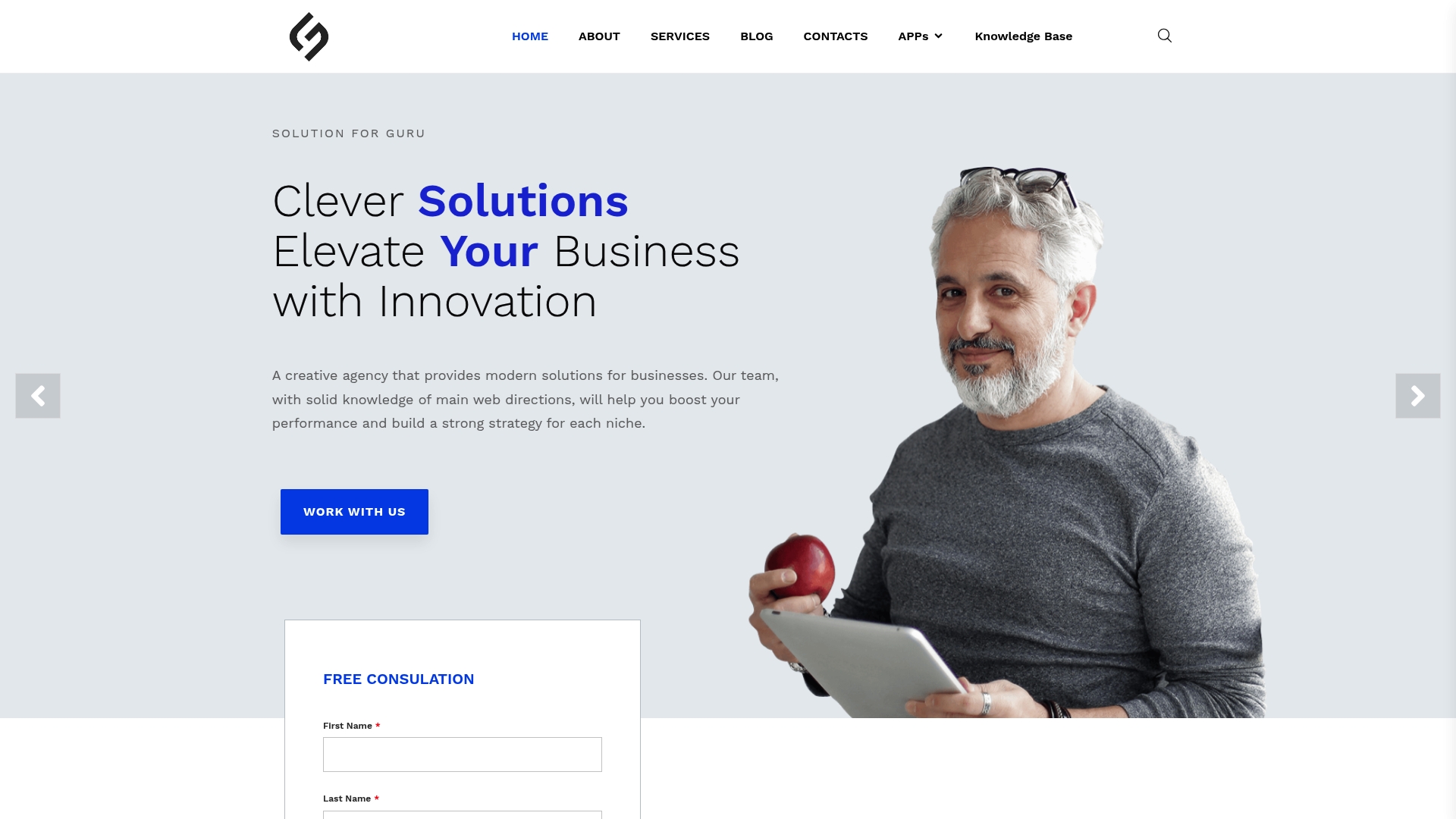What is Business Process Automation? Understanding Its Impact

Every company wants faster results and fewer mistakes in their daily work. A massive 84 percent of organizations say automation has given them a huge boost in efficiency. Yet most people assume automation is just about cutting jobs or using a few fancy robots. The real story is that business process automation is transforming entire industries by letting teams rethink how work gets done from the ground up.
Table of Contents
- Defining Business Process Automation: Key Concepts And Terms
- The Importance Of Business Process Automation For Organizations
- How Business Process Automation Works: Technology And Tools
- Real-World Applications Of Business Process Automation In Various Industries
Quick Summary
| Takeaway | Explanation |
|---|---|
| Business Process Automation enhances efficiency | BPA allows organizations to streamline workflows and reduce manual tasks, leading to increased operational efficiency and performance. |
| Key technologies include AI and RPA | Utilizing technologies like Robotic Process Automation and Artificial Intelligence enables businesses to automate tasks and improve decision-making. |
| Automation drives cost reduction | By minimizing manual intervention in repetitive tasks, organizations significantly lower labor costs associated with these processes. |
| Real-time monitoring improves performance | BPA facilitates continuous tracking and optimization of processes, leading to quicker responses and enhanced operational metrics. |
| BPA transforms organizational structures | It enables businesses to create agile, adaptive systems, reshaping how work is executed and enhancing overall responsiveness. |
Defining Business Process Automation: Key Concepts and Terms
Business Process Automation (BPA) represents a strategic approach where organizations leverage technology to execute recurring business tasks with minimal human intervention. Discover advanced automation strategies that transform operational efficiency.
Core Components of Business Process Automation
At its fundamental level, business process automation involves systematically converting manual, repetitive tasks into streamlined digital workflows. Organizations implement BPA through specialized software platforms that can map, execute, and monitor business processes automatically.
Key characteristics of effective business process automation include:
- Standardization: Creating consistent, repeatable processes across organizational departments
- Digital Transformation: Replacing manual tasks with intelligent technological solutions
- Workflow Optimization: Reducing human error and increasing operational speed

Technology and Methodology Behind Automation
According to Bowling Green State University, business automation goes beyond traditional data manipulation, focusing on mission-critical, event-driven core processes. This approach involves integrating multiple technologies such as:
- Robotic Process Automation (RPA)
- Artificial Intelligence (AI)
- Machine Learning algorithms
- Cloud-based workflow management systems
By implementing these technologies, businesses can create intelligent systems that learn, adapt, and continuously improve operational workflows.
To clarify the main technologies and their roles in Business Process Automation (BPA), here is a breakdown of each core component discussed:
| Technology | Description | Key Role in BPA |
|---|---|---|
| Robotic Process Automation (RPA) | Software robots that mimic human actions | Automates repetitive manual tasks |
| Artificial Intelligence (AI) | Intelligent systems capable of learning and decision-making | Enhances decision-making, adapts |
| Machine Learning Algorithms | Systems that improve performance through data analysis | Enables continuous optimization |
| Cloud-based Workflow Management | Online platforms to map, execute, and monitor processes | Centralizes and streamlines workflows |
The primary goal is not just replacing human labor but enhancing decision-making capabilities and creating more agile, responsive organizational structures.

Understanding business process automation requires recognizing it as more than a technological solution—it represents a comprehensive strategy for reimagining how work gets accomplished in the digital age.
The Importance of Business Process Automation for Organizations
Business Process Automation (BPA) has become a critical strategy for organizations seeking competitive advantage in an increasingly digital marketplace. Learn more about transformative process management and its strategic implications.
Strategic Efficiency and Operational Performance
According to APQC, 84% of organizations report significant improvements in operational efficiency through automation technologies. BPA enables businesses to streamline complex workflows, reduce manual interventions, and allocate human resources toward more strategic, value-added activities.
Key organizational benefits include:
- Cost Reduction: Minimizing labor expenses associated with repetitive tasks
- Error Elimination: Reducing human error through standardized digital processes
- Performance Tracking: Implementing real-time monitoring and analytics
Competitive Advantage and Technological Transformation
Modern organizations recognize that BPA is not merely a technological upgrade but a fundamental reimagining of operational capabilities. By integrating intelligent automation technologies, companies can:
- Accelerate decision-making processes
- Enhance customer experience through faster service delivery
- Create more adaptable and responsive organizational structures
The technological landscape demands continuous innovation. Business Process Automation provides a structured approach for companies to remain agile, efficient, and competitive in rapidly evolving markets. It represents a strategic investment in organizational resilience and technological sophistication.
How Business Process Automation Works: Technology and Tools
Business Process Automation (BPA) transforms organizational workflows through sophisticated technological ecosystems designed to minimize human intervention and maximize operational efficiency. Explore practical workflow automation techniques that drive digital transformation.
Core Technological Architecture
According to Digital.gov, the technological infrastructure of business process automation relies on multiple interconnected components that work seamlessly to replicate and enhance human capabilities. These systems integrate various technologies to create intelligent, adaptive workflow solutions.
Key technological components include:
- Robotic Process Automation (RPA): Software robots that mimic human actions
- Artificial Intelligence (AI): Intelligent systems capable of learning and decision-making
- Machine Learning Algorithms: Advanced systems that improve performance through data analysis
Workflow Execution and Monitoring
The automation process typically follows a structured approach involving multiple stages:
- Process identification and mapping
- Rule and workflow configuration
- Automated task execution
- Continuous performance monitoring
- Real-time reporting and optimization
These technological tools enable organizations to create dynamic, self-improving systems that can handle complex, multi-step processes with unprecedented speed and accuracy. By transforming manual, repetitive tasks into automated workflows, businesses can significantly reduce operational costs, minimize human error, and allocate human resources toward more strategic initiatives.
Real-World Applications of Business Process Automation in Various Industries
Business Process Automation transcends theoretical concepts, delivering tangible transformations across diverse sectors. Discover industry-specific workflow optimization strategies that revolutionize operational performance.
Financial Services and Banking Sector
According to Brookings Institution, automation technologies are fundamentally reshaping organizational capabilities. In financial services, BPA enables critical functions such as:
- Fraud Detection: Real-time transaction monitoring
- Compliance Reporting: Automated regulatory documentation
- Customer Onboarding: Streamlined account verification processes
Healthcare and Manufacturing Innovations
Different industries leverage Business Process Automation to address unique operational challenges. Healthcare organizations utilize BPA for patient record management, appointment scheduling, and insurance claim processing. Manufacturing sectors implement automation to:
- Optimize supply chain logistics
- Enhance quality control mechanisms
- Predict maintenance requirements for complex machinery
- Reduce human error in repetitive production tasks
Below is a summary showing how Business Process Automation impacts different industries with specific applications and benefits mentioned in the article:
| Industry/Sector | Example Applications | Main Benefits |
|---|---|---|
| Financial Services | Fraud detection, compliance reporting, | Real-time monitoring, |
| customer onboarding | regulatory efficiency | |
| Healthcare | Patient record management, appointment | Streamlined processes, |
| scheduling, insurance claim processing | reduced errors | |
| Manufacturing | Supply chain logistics, quality control, | Optimized production, |
| predictive maintenance, reduce human error | improved quality, less downtime |
These technological interventions represent more than efficiency improvements. They signal a fundamental shift in how organizations conceptualize work, transforming manual, time-consuming processes into intelligent, self-regulating systems that adapt and optimize continuously. Business Process Automation is not just a technological upgrade but a strategic reimagining of organizational potential.
Transform How Your Business Works with Custom Automation Solutions
Are you overwhelmed by repetitive manual tasks that slow down your business and increase the risk of human error? The article addresses exactly how business process automation can help organizations streamline workflows, boost efficiency, and embrace digital transformation. If your team is struggling to adapt to new technology or you want to take your process optimization further, Solution4Guru.com has the tailored expertise you need. By leveraging automation, AI integration, and web-based technologies, we help companies like yours standardize processes, improve decision-making, and maintain a competitive edge.

Start accelerating your operational performance today. Visit our homepage and see how our web development, automation, and business strategy consulting services can reduce your workload and grow your business. If you’re ready for a customer-focused approach and measurable results, book your free consultation now. The shift to seamless digital workflows starts with your next step.
Frequently Asked Questions
What is Business Process Automation (BPA)?
Business Process Automation (BPA) is a strategic approach that uses technology to execute recurring business tasks with minimal human intervention, transforming manual, repetitive processes into streamlined digital workflows.
What are the key components involved in Business Process Automation?
The key components of BPA include standardization of processes, digital transformation, and workflow optimization. It often utilizes technologies such as Robotic Process Automation (RPA), Artificial Intelligence (AI), and cloud-based workflow management systems to enhance efficiency.
How does automation improve operational efficiency in organizations?
Automation improves operational efficiency by streamlining complex workflows, reducing manual interventions, and allowing human resources to focus on strategic tasks. This leads to cost reduction, error elimination, and real-time performance tracking.
What industries benefit most from implementing Business Process Automation?
Industries such as financial services, healthcare, and manufacturing benefit significantly from BPA. For instance, financial services use BPA for fraud detection and compliance reporting, while healthcare utilizes it for patient record management and appointment scheduling.
Recommended
- Fundamentals of Business Process Management – Solution for Guru
- Benefits of Business Process Management – Solution for Guru
- 10 Pipedrive Workflow Automation Examples to Boost Productivity – Solution for Guru
- AI Tools for Business Efficiency
- Ultimate Guide to Accounting Automation in 2025 – Ready Accounting
- Revealing Secrets to Automating Business Processes with Adobe PDF Solutions



